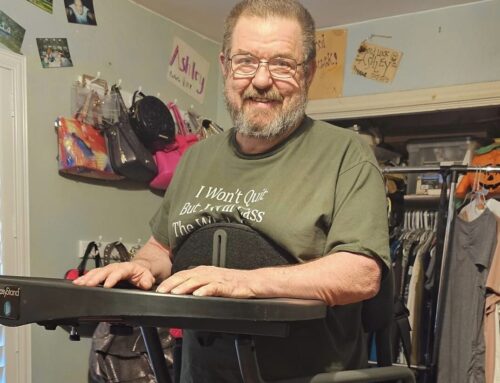Don’t expect the lights to come on at the Lakewood Theater anytime soon.
The neighborhood landmark, shuttered one year ago, is apparently caught between a variety of rocks and hard places – including the reluctance of national theater chains to take on a local operation and the unique, often adversarial, relationship between the theater and its neighborhood.
“We’ve offered to do pretty much whatever it takes to get someone in there,” says Emmitt Ball, whose company represents the four family trusts that own the theater and the four storefronts next to it.
“But it’s real difficult to rent those things.”
In fact, Ball says, the trusts are even prepared to subdivide the theater to add screens in much the same way the small Peterson chain renovated the Casa Linda Theaters and the mammoth AMC group redesigned the Highland Park Theater.
About the only thing they aren’t ready to do is to take out seats to make rooms for tables to turn the Lakewood into a restaurant/movie house or a nightclub.
So far, though, there are no takers.
In one way, this is understandable. A neighborhood theater is all but extinct, a victim of movieplexes and VCRs. Even when the Lakewood showed first-run films, its record was spotty. Some of this can be attributed to poor management, but some of it also is a fact of life. After all, a lot of people still like big band music, but how many big bands are left?
Where the neighborhood theater has thrived – Highland Park, for example – there have been extenuating circumstance. AMC ran the Highland Park when it subdivided it, which meant it had already fallen in love with its audience’s demographics and had plenty of reasons to stay.
AMC also has the clout to book first-run films, something independents struggle with in a movie world of high fees and even higher guarantees.
One reason the Lakewood tried second-run films just before it closed is that it couldn’t afford the first-run films people wanted to see. Why should a movie distributor let the Lakewood have Terminator 2 when it can give it to a chain like AMC, which can not only afford the guarantees but offers infinitely more exposure for the picture?
Compounding this problem is that the people who make decisions for national chains aren’t in Dallas. Ball says he would love to lease the Lakewood to Landmark, the company that runs the Inwood, and has tried to discuss it with Landmark.
And that makes sense – this is a neighborhood that would appreciate an art house like the Inwood. Everyone in Dallas knows that.
But Landmark’s headquarters aren’t in Dallas; it’s in Los Angeles, and you don’t have to be a cynical newspaperman to realize what kind of an obstacle that presents.
Another complication is the local real estate market, which may not be as bad as it was five years ago but still isn’t much more than sickly – especially for any endeavor that isn’t an auto parts store or a power center or a restaurant.
If there is prime commercial space on Greenville Avenue near the M Streets sitting empty, it’s going to be that much harder to lease non-commercial space like the Lakewood.
And don’t count on getting much help from the City. Dallas already owns one theater, the Downtown Majestic (a regal movie palace in its day), and this hasn’t exactly been a show-stopping success. In fact, the Majestic’s failure to attract concerts doesn’t bode well for anyone who wants to use the Lakewood for live music.
Finally, even if all of these obstacles can be overcome, there is one more hurdle: A lot of people who live around the Lakewood don’t want movie-goers to park in their front yards.
It’s hard to blame them, too, as anyone who followed the imbroglio between the Cowboys nightclub and its neighbors can testify.
The Lakewood Theater may be exempt from the parking restrictions placed on new tenants in its shopping center, but it’s not exempt from the sensibilities of the Junius Heights neighborhood.
There is a long, hard history between Junius Heights and the shopping center, and an additional 300 cars a night will almost certainly add another chapter to that history.
It’s hard to imagine Lakewood without the Lakewood Theater. Unfortunately, it may be time to start doing just that.





